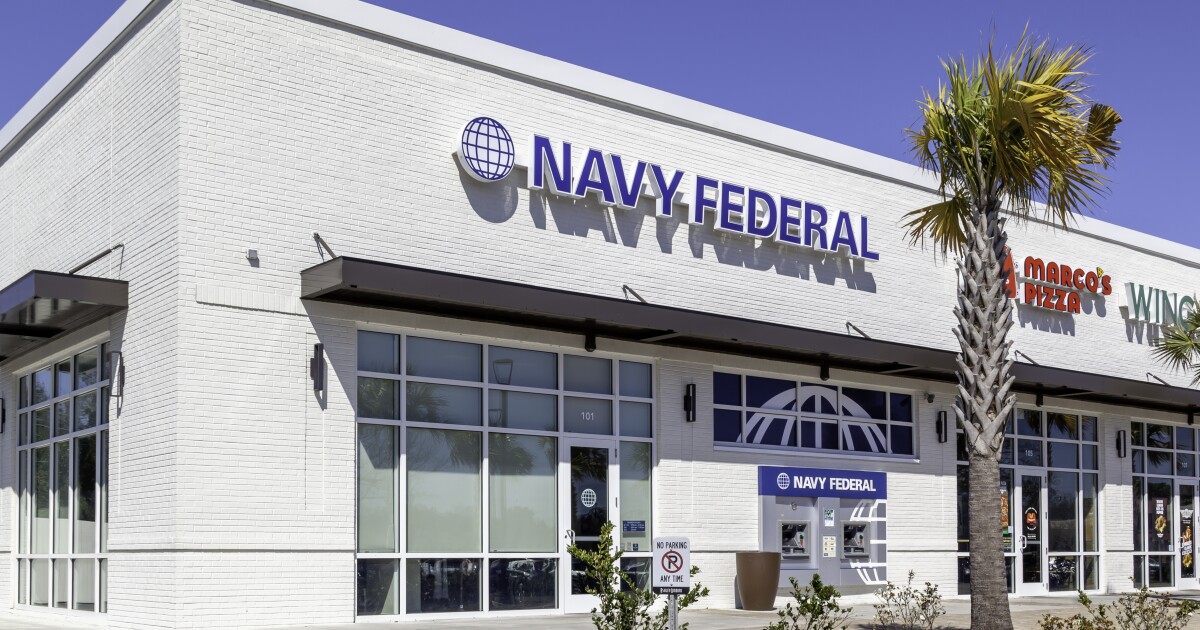
The Consumer Financial Protection Bureau has scrapped a $95 million settlement with Navy Federal Credit Union, freeing the nation's largest credit union from paying a $15 million fine and from refunding $80 million to service members who were illegally overcharged overdraft fees.
Acting CFPB Director Russell Vought on Monday terminated the consent order that $190.2 billion-assest Navy Federal had
The reversal is part of the Trump administration's efforts to undo actions and rules from the Biden administration. Vought has withdrawn or dismissed more than half of the CFPB's enforcement docket, more than 70 guidance documents and is trying
The CFPB's brief two-page
Navy Federal said in a statement that it "complied with all applicable laws and regulations at the time and continues to do so."
"We firmly believe the CFPB's decision to terminate the order was appropriate," the company said in a statement. "Our overdraft program allows our members to make necessary, everyday purchases without going into long-term debt or turning to payday lenders."
Under the November consent order, the CFPB claimed that Navy Federal illegally charged servicemembers overdraft fees in two ways: when the member had sufficient funds at the point of sale but a negative balance once the purchase was posted to the account, sometimes days later; and when a member had a peer-to-peer payment from Zelle, PayPal or Cash App that showed the funds were available but they didn't post until the next business day due to specific cutoff times.
When the $95 million consent order was announced in November, it was the largest ever assessed against a credit union.
At the time, the National Credit Union Administration Chairman Todd Harper issued
The CFPB had alleged that from 2017 to 2021, Navy Federal collected nearly $1 billion in overdraft fees and an average of $44 million a year in surprise overdraft fees. The bureau claimed that Navy Federal had engaged in several practices that caused servicemembers to pay what Chopra had called "illegal junk fees."
The credit union typically charged $20 for most overdraft transactions through its "Optional Overdraft Protection Service,"
The CFPB, Federal Deposit Insurance Corp, and Office of the Comptroller of the Currency have singled out certain overdraft practices such as "authorize positive, settle negative." Prudential regulators
Retired Army Col. Paul Kantwill, an advocate for servicemembers and veterans and a former head of the CFPB's office of Servicemember Affairs, said on a recent webinar that 44% of the 1.3 million active servicemembers are under the age of 25, and therefore have very little experience dealing with financial issues. In addition, between 25% to 33% of the active duty force churns over every three to four years.
"Once folks are on active duty, they move a lot and that makes it very, very difficult for folks to manage their financial affairs effectively, particularly in a really increasingly complex financial environment," Kantwill said.



